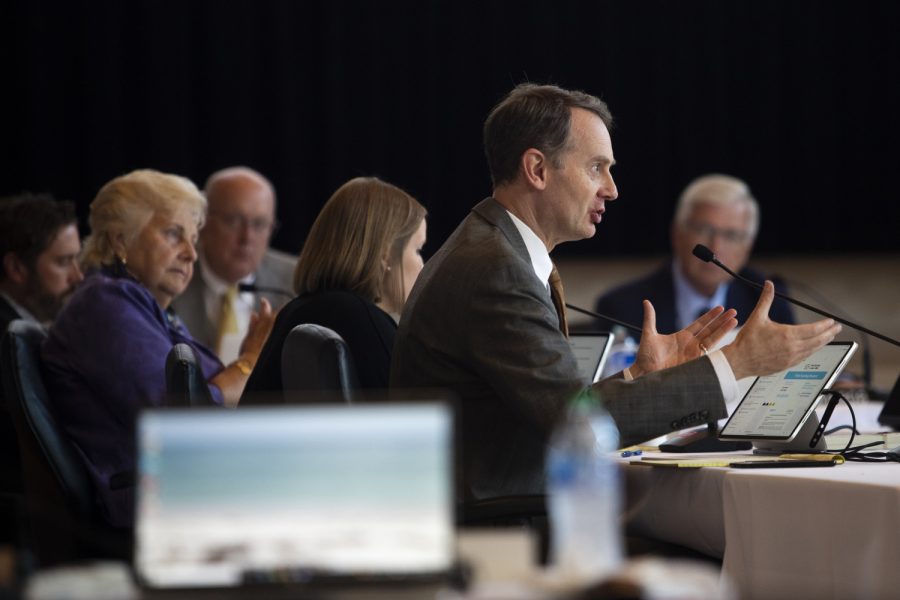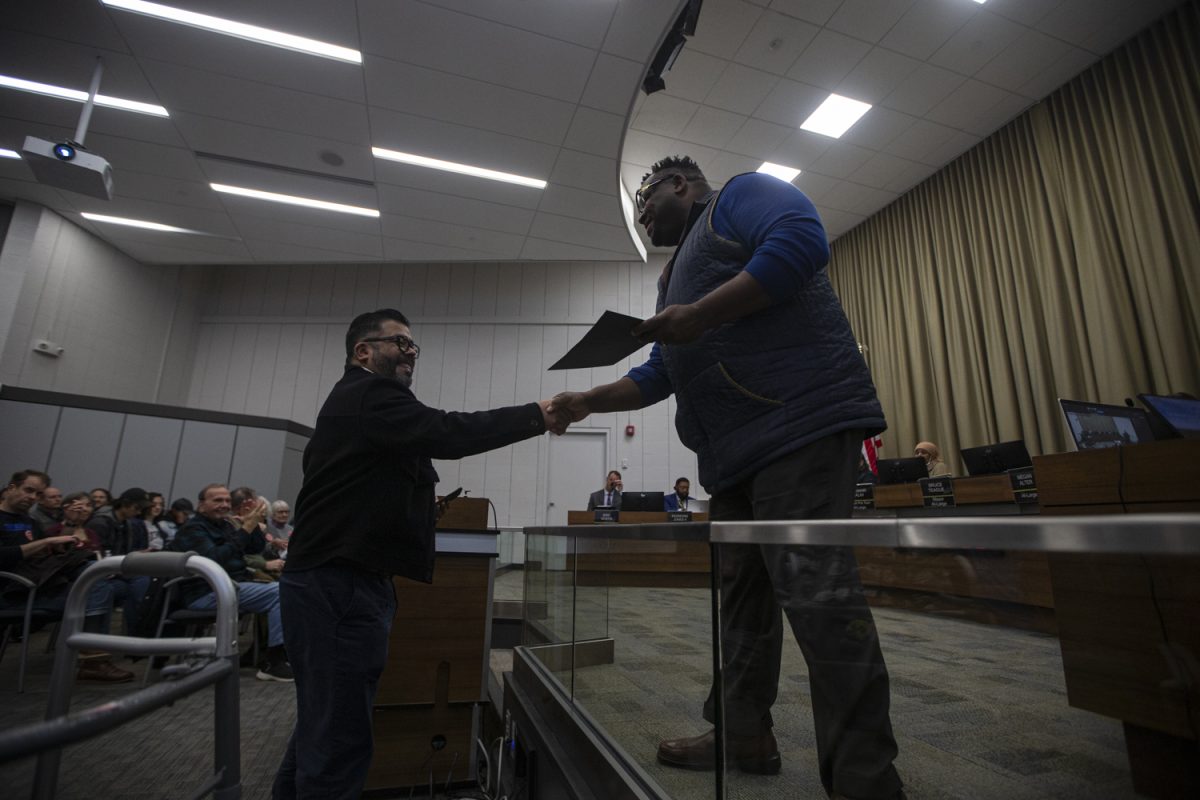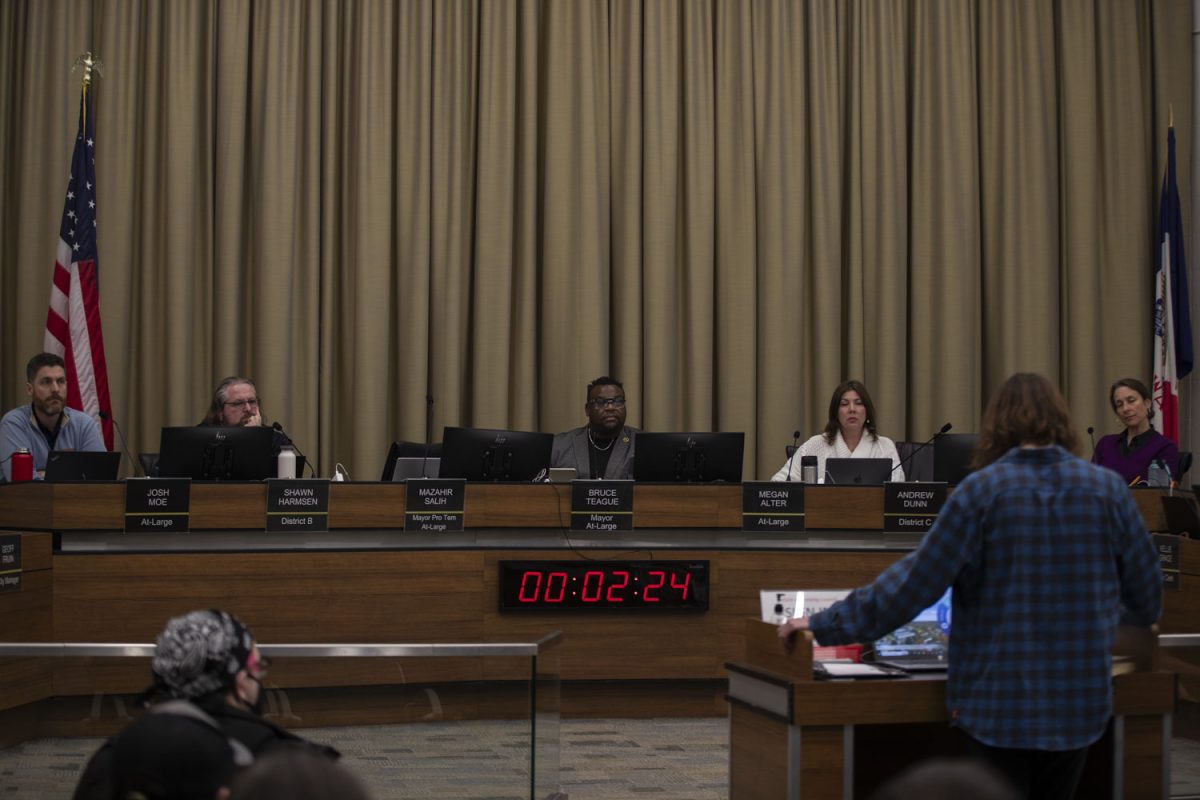US officials should work to improve education and minimize poverty abroad rather than focusing narrowly on shows of strength in the Middle East, said an expert on U.S. national-security policy in the Middle East.
Brian Katulis said the U.S. government should not "gerrymander things to our benefit" — or turn others’ problems into those of the United States.
He said the United States should use its military presence to benefit both its own security and help other states, instead of merely working in its own interests.
"The United States has the choice to attempt to preserve the status quo or try to use our considerable powers to shape the outcome and benefit our security," said Katulis, a senior fellow at the Center for American Progress in Washington, D.C.
Katulis spoke to a group of more than 75 people during a luncheon hosted by the Iowa City Foreign Relations Council on Wednesday afternoon.
In his lecture at the Congregational United Church of Christ, 30 N. Clinton St., Katulis said the United States should work to encourage governmental reform in countries such as Libya and Yemen and craft strategies to reduce our military footprint in the next decade.
Overall, though, the way the United States has patrolled the Middle East region needs to change, he said.
"America needs to hit the reset button on how we’ve done policy in the Middle East," said Katulis.
Osama bin Laden’s recent death is a definite morale boost for the U.S. military and government, but Katulis said terrorism is something that will never fully be eradicated.
"Many people can close this chapter on a 10-year period," he said, but he thinks terrorism will always exist in the world.
After his speech, Katulis said the slaying of Osama bin Laden speaks volumes for the Democratic Party and its ability to defend national security and will likely help the party in the 2012 election.
But issues such as economic concerns and the employment climate across the country will likely have more influence during next year’s election, Katulis said.
Danielle Dahl, the executive director of the Iowa City Foreign Relations Council, said the topic of the Middle East was of particular interest to the council because of the recent unrest in the region, and the lecture was "very well-received and informative."
Kenneth Hochstedler, an Iowa City resident who attended the event, said he believes the U.S. government and military are heading in the right direction in the Middle East.
But things other than eliminating terrorism should also be the government’s mind, he said, including increasing education and curbing poverty in the area.
"I hope we gradually back out," the 73-year-old said after the event.






